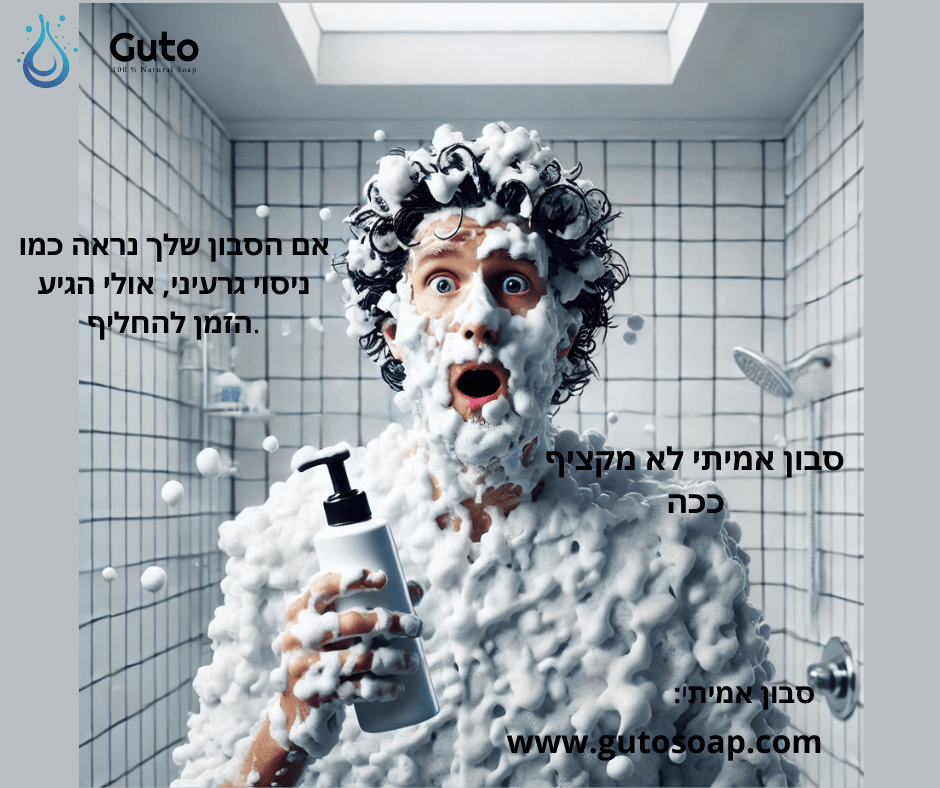
Natural Soap vs. Regular Soap: The Truth About the Foam They’re Hiding From Us
Share
Natural Soap vs. Regular Soap: The Truth About the Foam They’re Hiding from Us
Why does regular soap foam so much?
The rich lather we see in commercials is mostly created by synthetic ingredients like Sodium Lauryl Sulfate (SLS). While these ingredients give a visual impression of “cleanliness,” they actually strip the skin’s natural protective layer, which can lead to dryness, sensitivity, and even an uncomfortable tight feeling.
Foam as a marketing myth
Just like MSG in fast food fries — foam creates a false sense of cleanliness. Ads have trained us to believe that foam equals clean, but in reality, it’s just a chemical illusion. There’s no direct connection between the amount of foam and the effectiveness of the cleansing.
What does natural soap do?
Natural soap for sensitive skin is made from oils like coconut, olive, and castor. It produces less foam, but cleans gently, maintains the skin’s natural pH balance, and doesn’t damage its protective barrier. The result? Clean, healthy, and nourished skin — without harsh ingredients.
How to tell if your soap is too harsh
If your skin feels “squeaky” after using soap, it’s a sign that the soap is too strong and has stripped away essential protective oils. True cleansing shouldn’t come at the cost of skin health.
Bottom line: Foam ≠ Clean
More foam ≠ better soap
Natural soap = gentle and effective cleansing
It’s time to break old habits and choose skincare that respects your skin
Frequently Asked Questions
Does foam indicate soap quality?
No. Foam is usually the result of synthetic agents and doesn’t reflect true cleansing power — it’s mostly a marketing effect.
What are the benefits of natural soap?
Natural soap cleanses gently, helps maintain skin moisture, contains no harmful chemicals, and is especially suitable for sensitive skin.







